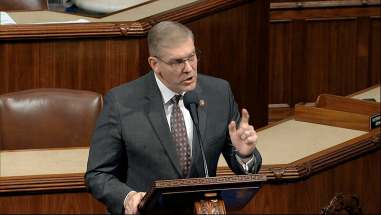Anonymous sex-assault report program ‘opportunity to be heard’
Read this article for free:
or
Already have an account? Log in here »
To continue reading, please subscribe:
Monthly Digital Subscription
$0 for the first 4 weeks*
- Enjoy unlimited reading on winnipegfreepress.com
- Read the E-Edition, our digital replica newspaper
- Access News Break, our award-winning app
- Play interactive puzzles
*No charge for 4 weeks then price increases to the regular rate of $19.00 plus GST every four weeks. Offer available to new and qualified returning subscribers only. Cancel any time.
Monthly Digital Subscription
$4.75/week*
- Enjoy unlimited reading on winnipegfreepress.com
- Read the E-Edition, our digital replica newspaper
- Access News Break, our award-winning app
- Play interactive puzzles
*Billed as $19 plus GST every four weeks. Cancel any time.
To continue reading, please subscribe:
Add Free Press access to your Brandon Sun subscription for only an additional
$1 for the first 4 weeks*
*Your next subscription payment will increase by $1.00 and you will be charged $16.99 plus GST for four weeks. After four weeks, your payment will increase to $23.99 plus GST every four weeks.
Read unlimited articles for free today:
or
Already have an account? Log in here »
Hey there, time traveller!
This article was published 19/12/2019 (2183 days ago), so information in it may no longer be current.
An anonymous sexual-assault reporting system meant to let survivors control how they disclose crimes against them has brought in roughly 30 reports since it was implemented in Manitoba more than a year ago.
The numbers are small — amounting to 1.5 reports per month — but police and sexual-assault counsellors say they represent the progress that’s been made to amplify the voices of survivors and give them an alternative to filing a traditional police report.
“That’s 30 people who wouldn’t have normally come to the police,” said Sgt. Gary Mathez, one of the officers in charge of the Winnipeg Police Service sex crimes unit.
“To me, it’s still significant that we’ve given 30 people an avenue to come forward that they wouldn’t normally have come to.”
“To me, it’s still significant that we’ve given 30 people an avenue to come forward that they wouldn’t normally have come to.”
– Sgt. Gary Mathez of the Winnipeg Police Service sex crimes unit.
Klinic Community Health has helped more than 30 people complete third-party sexual-assault reports so far, said Jerra Fraser, a counsellor with its sexual-assault crisis program.
The exact number of reports and statistics about which police agencies were involved were not released, but Fraser said the program is working the way it’s intended. People can make appointments with Klinic, and indicate they want to submit a third-party report about what happened to them.
“At the time of the appointments, people are saying that they’re finding it meaningful because there’s more choices for survivors. It’s really an opportunity to be heard, to have their story witnessed and to be controlling the process. So folks have mentioned this may be meaningful, because then maybe others will feel comfortable coming forward,” she said.

“I think that this is just part of a cultural change in terms of people naming their experiences, reaching out, kind of demystifying and lifting some shame and silence around sexual assault.”
Only one case that was initially reported anonymously has led to a criminal charge — after the victim decided on their own to come forward to WPS — but the purpose of the program has more to do with empowering sexual-assault survivors, Mathez said.
“It’s one tool within our belt, but it’s a very viable one, and, most importantly, it’s one that’s been good for survivors (who) are still not comfortable talking to the police, but yet can get information to the police that could be of use to us.”
In April 2018, WPS and Manitoba RCMP announced they would team up with community health organizations to accept third-party reports of sexual assault, making Manitoba the third region in Canada to do so after B.C. and Yukon.
The move was lauded by the provincial government, after Rochelle Squires, then-minister responsible for the status of women, publicly expressed her support.
“People are saying that they’re finding it meaningful because there’s more choices for survivors. It’s really an opportunity to be heard, to have their story witnessed and to be controlling the process.”
– Klinic Community Health counsellor Jerra Fraser
Since then, third-party reports haven’t been widely completed outside of Winnipeg, and it’s unclear if any have been shared with RCMP. Most of the anonymous reports in Manitoba have been completed at Klinic and forwarded to city police.
Manitoba RCMP spokesman Sgt. Paul Manaigre said D Division doesn’t track the number of third-party reports its detachments may have received. He said it’s important for people to know they can submit third-party sexual-assault reports even if they live in remote areas of the province.
“I’m not sure who’s aware of this program, and, like I say, that gets more difficult the more remote you are. How difficult is it for them, first of all, to want to come forward, and then if they do, what resources do they have?”
Manaigre said the RCMP does support the third-party reporting system.
“It’s pretty much like any crime out there — the more information we have, the better it is for everyone.”
The reports come in to counsellors and are passed on to police with survivors’ consent and without their names.
Klinic, Mount Carmel Clinic’s Sage House program, Ka Ni Kanichihk’s Heart Medicine Lodge, and Pluri-Elles Manitoba can take the reports. Police can’t launch an investigation or lay charges based on the anonymous reports, but they can try to link them to other ongoing investigations or use the information they contain to spot patterns and trends.
When the anonymous reports get to WPS, the information they contain — which could include suspects’ names and descriptions — is entered into an internal police database and reviewed for entry into the province-wide Violent Crime Linkage Analysis System (ViCLAS) database. It’s not clear whether RCMP have entered any information from third-party sexual-assault reports into the ViCLAS database.
katie.may@freepress.mb.ca
Twitter: @thatkatiemay
By the numbers
Although the majority of sexual assaults in Canada aren’t reported to police, a higher rate are reported in Manitoba than any other province, according to recent data from Statistics Canada.
The highest rates of victims who reported sexual assault to police in Canada in 2018 were in the three territories, followed by Manitoba, Nova Scotia and Saskatchewan, data released last week by the national statistics agency show.
Police in the province are part of a sexual-assault response team with health-care providers and community counselling organizations, as they work toward a trauma-informed approach to handling sexual-assault reports.
Sgt. Gary Mathez, of the Winnipeg Police Service sex crimes unit, said more awareness among police of the trauma associated with reporting sexual assault can encourage more victims to come forward.
“I think these avenues are working, but it doesn’t mean we don’t keep working,” he said.
Mathez said third-party reports aren’t the only way police can give sexual-assault victims more choices. He said investigators honour “forensic holds” — they store DNA evidence collected during hospital sexual-assault examinations (commonly known as rape kits) indefinitely, letting victims decide whether to come forward in their own time.
The evidence can be sent for testing if the victims give their consent.
“We get them here all the time,” Mathez said. “More frequently than the third-party reports.”

Katie May is a general-assignment reporter for the Free Press.
Our newsroom depends on a growing audience of readers to power our journalism. If you are not a paid reader, please consider becoming a subscriber.
Our newsroom depends on its audience of readers to power our journalism. Thank you for your support.
History
Updated on Thursday, December 19, 2019 10:12 PM CST: Adds minor detail.







